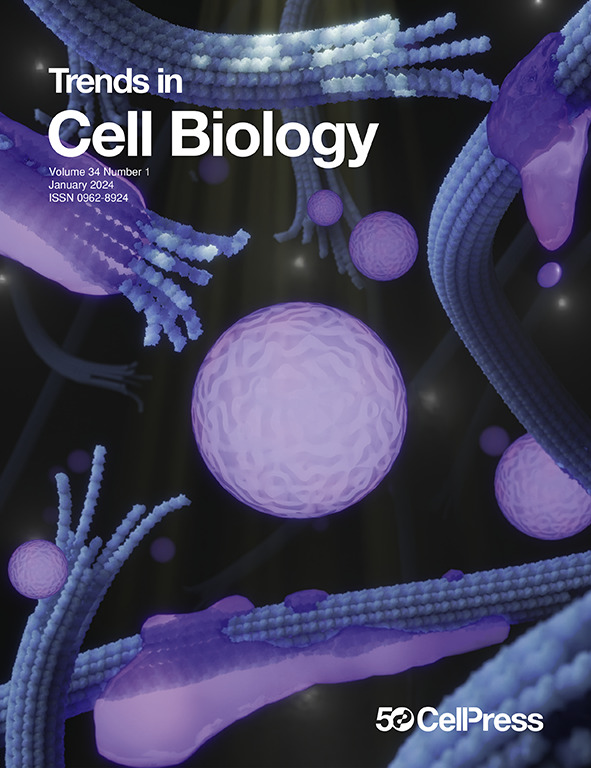阳光下的乐趣:核糖体抵御紫外线照射。
IF 13
1区 生物学
Q1 CELL BIOLOGY
引用次数: 0
摘要
核糖体是翻译窘迫传感器的概念引起了极大的兴趣,尽管许多研究都是在体外进行的。Vind等人的一项新研究提供了体内证据,证明核素毒性应激反应(RSR)是抵御紫外线(UV)辐射的第一道防线。本文章由计算机程序翻译,如有差异,请以英文原文为准。
Fun in the sun: ribosomes defend against UV irradiation.
The concept that ribosomes are sensors of translational distress has sparked significant interest, although much of the research has been conducted in vitro. A new study by Vind et al. provides in vivo evidence that the ribotoxic stress response (RSR) serves as the first line of defense against ultraviolet (UV) radiation.
求助全文
通过发布文献求助,成功后即可免费获取论文全文。
去求助
来源期刊

Trends in Cell Biology
生物-细胞生物学
CiteScore
32.00
自引率
0.50%
发文量
160
审稿时长
61 days
期刊介绍:
Trends in Cell Biology stands as a prominent review journal in molecular and cell biology. Monthly review articles track the current breadth and depth of research in cell biology, reporting on emerging developments and integrating various methods, disciplines, and principles. Beyond Reviews, the journal features Opinion articles that follow trends, offer innovative ideas, and provide insights into the implications of new developments, suggesting future directions. All articles are commissioned from leading scientists and undergo rigorous peer-review to ensure balance and accuracy.
 求助内容:
求助内容: 应助结果提醒方式:
应助结果提醒方式:


